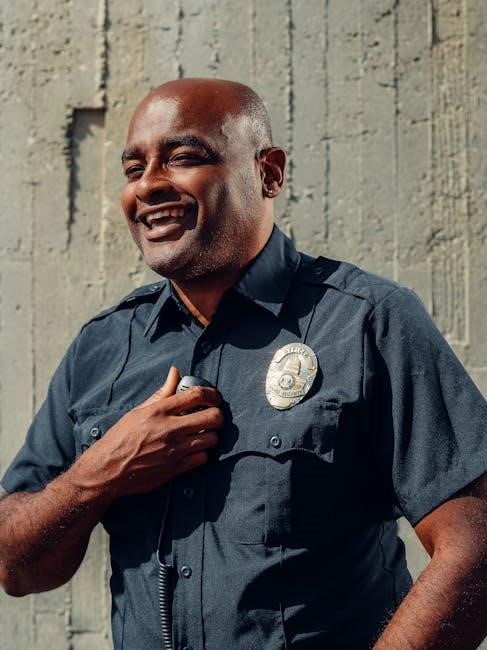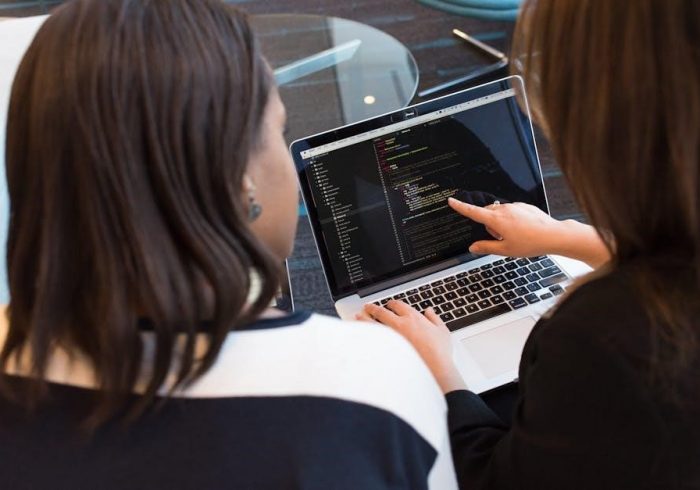Security officers play a vital role in maintaining safety and security across various settings. Their key duties include patrolling premises, enforcing policies, and responding to incidents, ensuring the protection of property, personnel, and visitors. This section provides an overview of their essential responsibilities and the significance of their role in modern organizations.
1.1 Overview of the Role
A security officer is responsible for safeguarding premises, personnel, and assets by patrolling, monitoring, and enforcing policies. Their role involves responding to incidents, managing access control, and handling confidential information. Vigilance and adherence to protocols are critical, ensuring a secure environment and preventing potential threats, making them indispensable in maintaining organizational safety and order.
1.2 Importance of Security Officers in Maintaining Safety
Security officers are crucial in preventing theft, vandalism, and unauthorized access, ensuring a safe environment for personnel and assets. They handle confidential information and respond to emergencies, maintaining order and compliance with laws. Their role is vital in protecting property, preventing hazards, and upholding organizational security protocols, making them essential for operational integrity and safety.
Core Duties of a Security Officer
Security officers perform essential tasks such as patrolling premises, monitoring for safety hazards, enforcing policies, and responding to incidents. They ensure compliance with regulations and maintain a secure environment.
2.1 Patrolling Premises and Monitoring for Safety Hazards
Security officers conduct regular patrols of interior and exterior areas to identify and mitigate potential safety risks. They monitor surveillance systems, inspect equipment, and check access points to ensure a secure environment, preventing accidents and unauthorized access. Their vigilance is crucial for maintaining safety standards and protecting property, personnel, and visitors from hazards and threats.
2.2 Responding to Emergencies and Incidents
Security officers are trained to respond swiftly and effectively to emergencies, providing assistance and ensuring safety. They handle incidents such as medical emergencies, fires, or unauthorized access, often serving as the first line of response. Their actions prevent escalation, protect lives, and maintain order, demonstrating their critical role in crisis management and safeguarding environments.
2.3 Enforcing Policies and Procedures
Security officers ensure compliance with organizational rules by enforcing policies and procedures. They monitor access, verify credentials, and address violations, maintaining a secure environment. Their adherence to protocols prevents unauthorized activities, protecting assets and ensuring operational integrity, which is essential for upholding safety and legal standards within the organization.
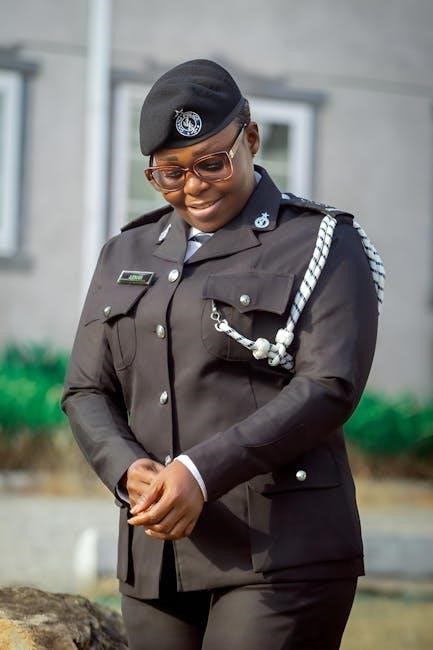
Key Responsibilities of a Security Officer
Security officers are responsible for protecting property, personnel, and visitors by monitoring access, patrolling premises, responding to incidents, and handling confidential information to ensure safety and security.
3.1 Protecting Property, Personnel, and Visitors
Security officers safeguard property, personnel, and visitors by patrolling premises, monitoring access, and responding to incidents. They ensure a safe environment, prevent unauthorized entry, and protect assets from theft or damage, maintaining vigilance to address potential threats promptly and effectively, ensuring everyone’s security and well-being at all times while on duty.
3.2 Operating Access Control and Surveillance Systems
Security officers monitor CCTV cameras and access systems to ensure secure entry and exit points. They operate surveillance equipment, intercoms, and alarms, verifying identities and granting access only to authorized individuals. This role involves maintaining security protocols, preventing unauthorized access, and ensuring the smooth operation of all surveillance and access control systems to safeguard the premises effectively.
3.3 Handling Confidential Information and Assets
Security officers are responsible for safeguarding confidential information and valuable assets. They ensure the protection of sensitive data, equipment, and property from theft or unauthorized access. This involves adhering to strict security protocols, monitoring access, and maintaining confidentiality to prevent breaches. Their role is critical in ensuring the integrity and safety of all confidential materials and assets within the organization.

Specific Duties in Different Settings
Security officers’ duties vary by setting, with corporate roles focusing on protecting employees and assets, residential roles ensuring community safety, and public sector roles upholding government security protocols and regulations to maintain order and protect public property effectively across diverse environments and operational needs.
4.1 Corporate Security Officer Duties
Corporate security officers are responsible for safeguarding employees, assets, and facilities. Duties include patrolling premises, monitoring surveillance systems, enforcing company policies, and responding to incidents. They also handle confidential information and ensure compliance with legal frameworks, maintaining a secure environment that supports business operations and protects sensitive data effectively within the organizational structure and objectives.
4.2 Residential Security Officer Responsibilities
Residential security officers ensure a safe living environment by patrolling properties, monitoring access points, and responding to emergencies. They handle incidents, provide assistance, and enforce community rules. Their duties include securing entry and exit points, monitoring surveillance systems, and protecting residents and property from potential threats, ensuring a secure and peaceful residential setting for all occupants and assets.
4.3 Public Sector Security Officer Roles
Public sector security officers are responsible for safeguarding government buildings, personnel, and assets. Their roles include conducting regular patrols, monitoring surveillance systems, and responding to emergencies. They enforce security protocols, protect sensitive information, and ensure compliance with national laws and regulations, maintaining a secure environment for public operations and services, while upholding the integrity of governmental facilities and activities at all times.
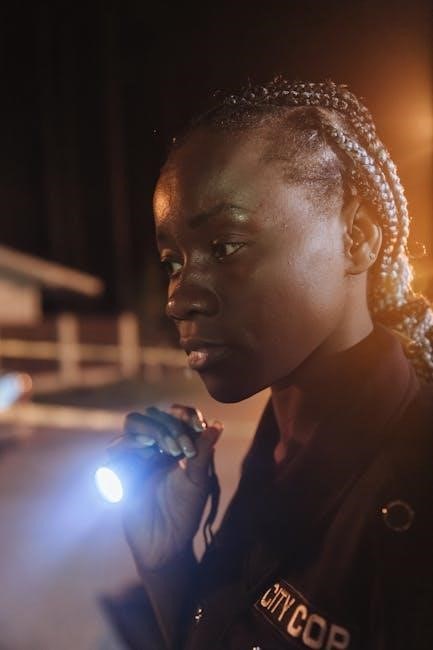
Communication and Teamwork
Security officers must communicate effectively with employees, visitors, and law enforcement, while collaborating with other security personnel to ensure a safe and secure environment through teamwork.
5.1 Interacting with Employees, Visitors, and Law Enforcement
Security officers interact professionally with employees, visitors, and law enforcement to maintain order and safety. They provide assistance, answer inquiries, and ensure compliance with security protocols, fostering a cooperative environment while addressing concerns promptly and courteously to uphold organizational security standards effectively.
5.2 Collaborating with Other Security Personnel
Security officers work collaboratively with other security team members to ensure seamless security operations. They share intelligence, coordinate responses, and support each other during incidents, fostering a cohesive approach to maintaining safety. This teamwork ensures effective communication and mutual assistance, enhancing overall security protocols and providing a secure environment through shared expertise and cooperation.
Incident Reporting and Documentation
Security officers document incidents, hazards, and responses, preparing detailed reports and maintaining accurate records. This ensures transparency, accountability, and informed decision-making for future security protocols and compliance.
6.1 Documenting Security Incidents and Hazards
Documenting security incidents and hazards is crucial for maintaining accountability and preventing future occurrences. Security officers record all incidents, monitor CCTV footage, and prepare detailed reports. Accurate documentation ensures that all events are tracked, analyzed, and addressed appropriately. This process supports incident management, legal compliance, and continuous improvement of security protocols. Proper records also aid in training and enhancing emergency response strategies effectively.
6.2 Preparing Incident Reports and Shift Summaries
Security officers must prepare detailed incident reports and shift summaries, accurately documenting events, actions taken, and outcomes. These records include time, location, and involved parties, ensuring transparency and accountability. Reports are essential for legal purposes, trend analysis, and improving security protocols. They also provide a clear overview of daily activities, helping to identify patterns and enhance future responses effectively.
Compliance with Laws and Regulations
Security officers must adhere to company policies and national laws, understanding legal frameworks and security procedures to ensure lawful and ethical practices in their duties.
7.1 Understanding Security Procedures and Legal Frameworks
Security officers must comprehend security procedures and legal frameworks, including laws like the Protection of Information Act and NISA. This understanding ensures they operate within legal boundaries, safeguarding assets and personnel while adhering to compliance requirements. Proper knowledge of these frameworks is essential to prevent unauthorized access and maintain operational integrity, aligning their duties with legal standards and organizational policies.
7.2 Adhering to Company Policies and National Laws
Security officers must strictly adhere to company policies and national laws, ensuring compliance with legal standards and organizational regulations. This includes enforcing security rules, safeguarding assets, and maintaining confidentiality. Adherence to these frameworks ensures operational integrity, prevents unauthorized access, and upholds the organization’s legal and ethical obligations, fostering a secure and compliant environment for all stakeholders involved.
Emergency Preparedness and Response
Security officers must be prepared to handle emergencies, providing immediate assistance and first aid. They participate in drills and training to ensure quick, effective responses, minimizing risks and securing the environment during critical situations;
8.1 Providing Emergency Assistance and First Aid
Security officers are often first responders, providing immediate assistance and first aid during emergencies. They assess situations, administer basic medical care, and ensure safety until professional help arrives. Their prompt actions can prevent minor incidents from escalating, safeguarding lives and property effectively. This duty requires both quick thinking and proper training to handle various emergency scenarios efficiently.
8.2 Participating in Drills and Training Exercises
Security officers actively participate in emergency drills and training exercises to enhance their response skills. These activities simulate real-life scenarios, ensuring preparedness for crises like fires, evacuations, or medical emergencies. Regular training updates officers on new protocols, equipment, and techniques, improving their ability to handle incidents effectively and maintain a safe environment for everyone.
Access Control and Surveillance
Security officers monitor CCTV cameras, operate access systems, and manage entry/exit points to ensure authorized access and maintain surveillance, safeguarding premises and assets effectively.
9.1 Monitoring CCTV Cameras and Access Systems
Security officers monitor CCTV cameras to detect suspicious activities, ensuring premises safety. They operate access systems, controlling entry and exit points, and respond promptly to security breaches, safeguarding assets and personnel effectively while maintaining vigilance and professionalism in their duties.
9.2 Managing Entry and Exit Points
Security officers manage entry and exit points to ensure authorized access only. They verify identities, issue passes, and monitor movement, preventing unauthorized entry. This role is crucial for maintaining security protocols and safeguarding premises, personnel, and assets from potential threats, ensuring a secure environment at all times through vigilant oversight and effective access control measures.
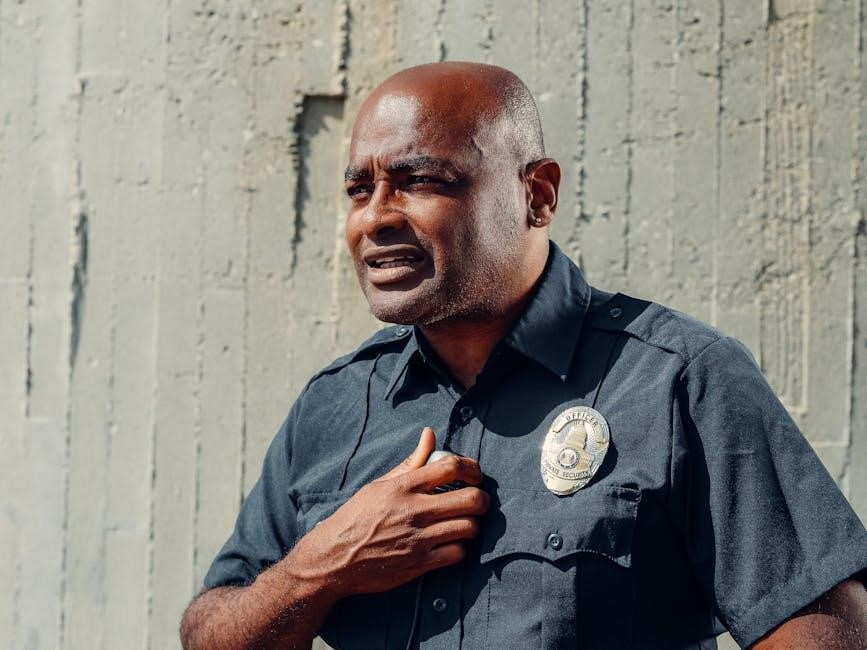
Customer Service and Public Interaction
Security officers provide exceptional customer service by assisting visitors, offering directions, and ensuring a welcoming environment. They maintain professionalism, fostering positive interactions while securing premises effectively always.
10.1 Maintaining a Professional Demeanor
Maintaining a professional demeanor is crucial for security officers. They must present themselves courteously, remain approachable, and handle situations calmly. A professional appearance and respectful communication foster trust and cooperation, ensuring effective security operations and positive public interactions. This demeanor is essential for de-escalating conflicts and providing assistance while upholding organizational standards and safety protocols consistently.
10.2 Assisting Visitors and Providing Directions
Security officers are often the first point of contact for visitors, making it essential to provide clear directions and assistance. They greet visitors politely, offer guidance, and ensure they follow entry protocols. This role enhances the visitor experience while maintaining security, fostering a positive and organized environment for everyone entering the premises.
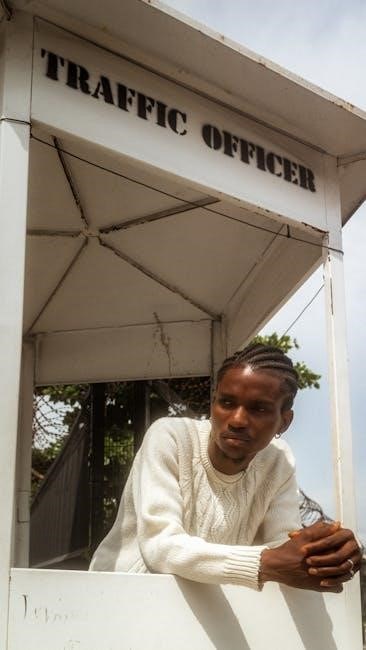
Risk Management and Prevention
Security officers identify potential threats and hazards, preventing theft, vandalism, and unauthorized access. They implement proactive measures to mitigate risks, ensuring a safe and secure environment.
11.1 Identifying Potential Threats and Hazards
Security officers proactively identify potential threats and hazards through surveillance, inspections, and monitoring. They assess risks, detect suspicious activities, and implement preventive measures to mitigate dangers, ensuring a safe environment for personnel and assets by addressing vulnerabilities promptly and effectively.
11.2 Preventing Theft, Vandalism, and Unauthorized Access
Security officers prevent theft, vandalism, and unauthorized access by monitoring premises, enforcing access controls, and conducting regular patrols. They deter illegal activities through visible presence and respond swiftly to incidents, safeguarding property and assets from damage or theft, ensuring a secure environment for all personnel and visitors.
Continuous Training and Development
Security officers engage in regular training to stay updated on security protocols and technologies, ensuring they are equipped to handle evolving threats and maintain a high level of professionalism.
12.1 Participating in Security Training Programs
Security officers participate in comprehensive training programs to enhance their skills in emergency response, surveillance, and access control. These programs ensure they are well-prepared to handle various security scenarios effectively, maintaining safety and order within their assigned areas. Continuous learning is essential to adapt to new threats and technologies, ensuring optimal performance in their roles.
12.2 Staying Updated on Security Protocols and Technologies
Security officers must stay informed about the latest security protocols and technological advancements to effectively manage risks. This includes understanding access control systems, surveillance technologies, and legal frameworks. Regular updates ensure they can adapt to new threats and maintain compliance with company policies, ultimately safeguarding personnel, assets, and premises from potential breaches and vulnerabilities.
Security officers are crucial for maintaining safety and order. Their duties include patrolling, responding to incidents, and protecting assets. Their role is vital in ensuring security in various settings.
13.1 Summary of Key Duties and Responsibilities
Security officers are responsible for patrolling premises, monitoring safety hazards, and responding to emergencies. They enforce policies, handle confidential information, and protect property, personnel, and visitors. Their duties also include interacting with employees and visitors, documenting incidents, and collaborating with other security personnel to ensure a safe and secure environment.
13.2 The Vital Role of Security Officers in Modern Organizations
Security officers are essential for maintaining safety and order in organizations. They protect property, personnel, and visitors while enforcing policies and responding to incidents. Their role ensures compliance with laws, handles confidential information, and supports operational efficiency. By addressing risks and collaborating with teams, security officers contribute significantly to organizational security and stability in diverse settings, making their presence indispensable in modern environments.
